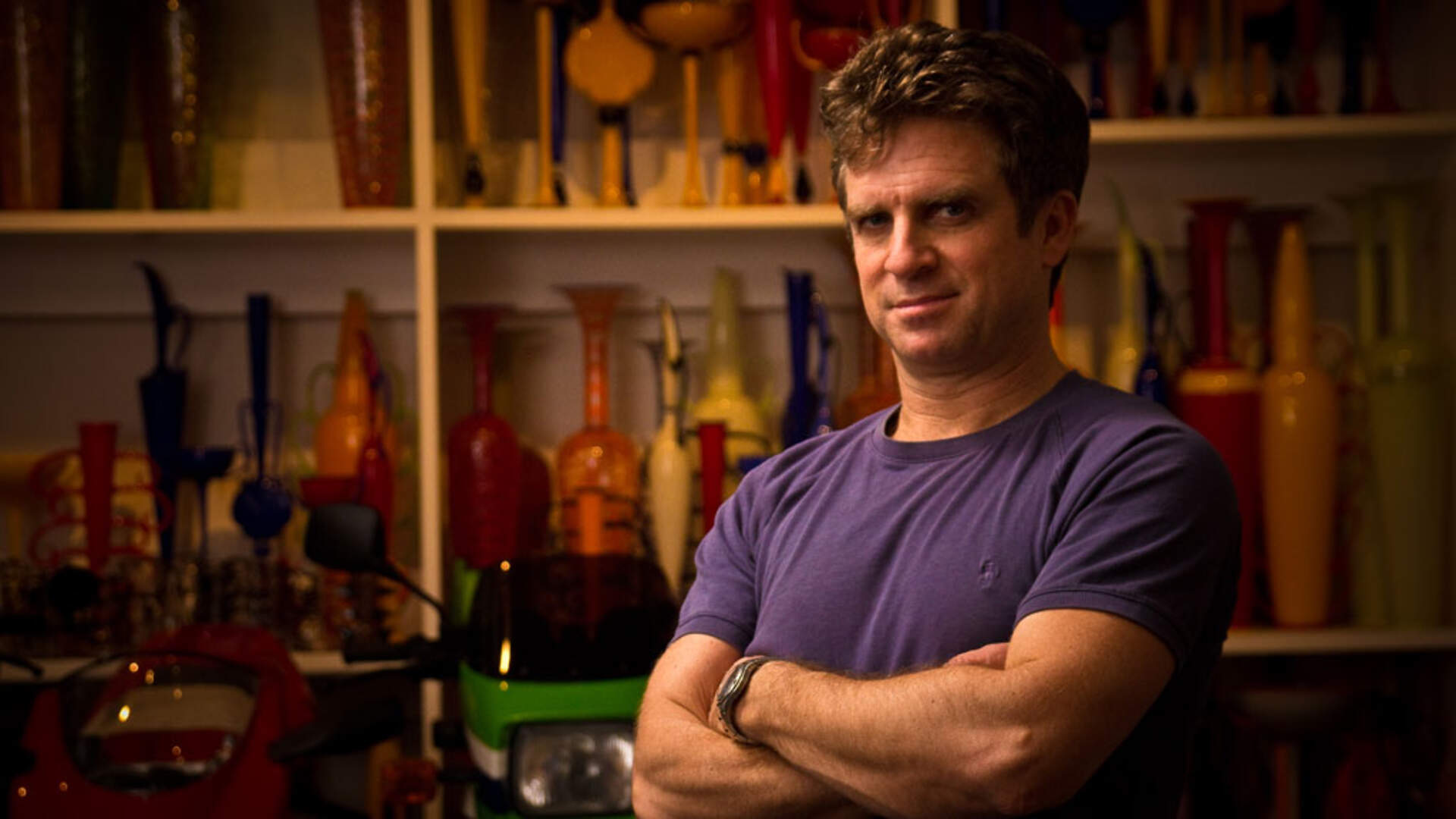Dante Marioni
(b. 1964)
Born: Mill Valley, California
Dante Marioni is a glass artist that was born in Mill Valley, California in 1964. He burst onto the international glass scene at the age of 19 with a signature style that has been described as the purest of classical forms executed in glass by an American glassblower. His amphoras, vases, and ewers are derived from Greek and Etruscan prototypes, yet they are imaginatively and sometimes whimsically reinterpreted. His impossibly elongated, sinuous shapes are made with bright and saturated contrasting colors. Marioni’s sophisticated glass objects evoke the rich tradition of classical Mediterranean pottery and bronzes, and of Marioni’s training in centuries-old Venetian glassblowing techniques with some of the greatest masters in contemporary glass.
The son of American studio glass pioneer Paul Marioni, Dante Marioni was raised in a family of artists that includes two well-known uncles, painter Joseph Marioni and conceptual artist Tom Marioni. Dante Marioni first held a blowpipe at the age of nine. By the time he was 15, he was working after school at one of the first cooperative hotshops and showrooms, The Glass Eye, in Seattle Washington. At the age of 23, Marioni had his first sell-out gallery show in Seattle that featured his "Whopper" vases. This series introduced his signature, monumental forms and two-color style, and earned him a prestigious Louis Comfort Tiffany Fellowship. After two decades of experimentation, Marioni now creates a diverse range of tall, iconic forms with surface treatments such as murrine (mosaic) and reticello (air bubbles within a net pattern) in an ever-changing array of vibrant colors.
Although he loved glassblowing, making production studio glass felt limiting. “The prevailing aesthetic [in American studio glass in the 1970s] was loose and free-form” observed Marioni, “I personally had no interest in that.” Around the same time, he met up with Benjamin Moore, another studio glass pioneer, and watched Moore make a perfectly symmetrical, on-center glass form inspired by Venetian glass. It had a dramatic and lasting effect on Marioni, who had not previously seen this type of glassblowing. Moore soon became a great mentor and friend. “I worked with Benny any chance I got and still use his studio to this day to make some of my really large pieces,” Marioni states. He also studied with other well-known studio glass pioneers, such as Fritz Dreisbach and Richard Marquis, who is widely recognized for his unique interpretations of Venetian decorative techniques.
Dante received an intensive early training at Pilchuck Glass School in Stanwood, Washington, working overtime to practice glassblowing. It was here that Marioni met Lino Tagliapietra, the legendary maestro who traveled from Murano to teach young American glassblowers at Pilchuck. “I took classes with Lino throughout the 1990s, and because of him, I received a very classical education in glassblowing. I never missed an opportunity to be around him.” Other works by Marioni are sculptural vessels inspired by the leaf. “Not the leaf in nature, but the stylized forms found in the decorative arts,” Marioni notes. The new vessels are beguilingly intricate, inventive, fresh and tradition-breaking. While his earlier work was about “form, conceived and executed from a design point of view,” his newest works focus on the exploration of color and pattern. For Marioni, making objects is about the art of glassblowing rather than the creation of glass art, the process rather than the result. Marioni’s elegant works are the brilliant record of his on-going relationship with and exploration of this material.
By the late-1980s, Marioni could claim his own successful career, exhibiting in major galleries and museums such as the Bellevue Art Museum, Washington and the American Craft Museum, New York. In 1995, he was invited to the Clinton White House as part of an exhibition, and his work graced the cover of the accompanying publication, The White House Collection of American Crafts. In 2008, he had a solo exhibition at the Museum of Glass in Tacoma. His works are part of major collections and museums throughout the world, including: the Corning Museum of Glass (NY); the Chrysler Museum (Norfolk, VA); the New Zealand National Museum of Art (Wellington); the Smithsonian Institution (Washington, DC); and the Yokohama Museum of Art (Japan).
